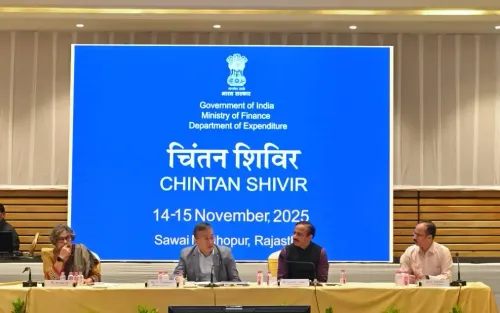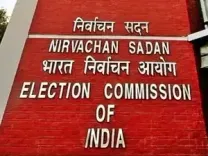What Key Changes Are Coming to IRCTC Ticketing, Speed Post, and Small Business Lending This Month?

Synopsis
Key Takeaways
- IRCTC implements Aadhaar-based ticket booking guidelines.
- India Post introduces OTP-based delivery for Speed Post.
- Revised fees for the National Pension System come into effect.
- HDFC Bank updates eligibility criteria for premium clients.
- RBI enhances lending flexibility for small business loans.
New Delhi, Oct 1 (NationPress) On Wednesday, significant financial and regulatory modifications came into effect, impacting small banking, postal services, pensions, and railway ticketing.
The Indian Railways booking platform, IRCTC, has implemented new Aadhaar-based guidelines for online general ticket bookings to curb misuse of the reservation system by fraudulent agents. India Post is anticipated to update its Speed Post tariffs and initiate an OTP-based delivery mechanism starting from October 1, enhancing package security.
The ministry circular dated September 15 stated, “To ensure that the benefits of the reservation system reach the genuine end user and are not exploited by dishonest entities, it has been determined that as of 1.10.2025, during the initial 15 minutes of opening general reservations, reserved general tickets can be booked via the Indian Railway Catering and Tourism Corporation (IRCTC) website/app only by Aadhaar verified users.”
The Pension Fund Regulatory and Development Authority has adjusted fees for Central Recordkeeping Agencies overseeing the National Pension System and related schemes, effective from October 1. Non-government subscribers can now invest a full 100% in equities starting this month.
HDFC Bank, India's largest private sector bank, has rolled out new eligibility requirements for its Imperia premium clients. Those who signed up before June 30 must now adhere to revised Total Relationship Value (TRV) standards to maintain their premium banking services.
Punjab National Bank, a public sector lender, has raised locker fees and service request charges.
Furthermore, the Reserve Bank of India has released new directives for small business loans, enhancing lending flexibility for banks. Under this new regulation, banks can now decrease other spread components sooner than the previous three-year timeframe to benefit borrowers. Additionally, borrowers may opt for a fixed-rate loan at the time of reset.
The RBI has also mandated scheduled commercial banks (SCBs) to extend working capital loans to jewelers. It has permitted Tier 3 and Tier 4 Urban Co-operative Banks to provide working capital loans to borrowers utilizing gold as a raw material or input in their manufacturing or industrial processing activities.









